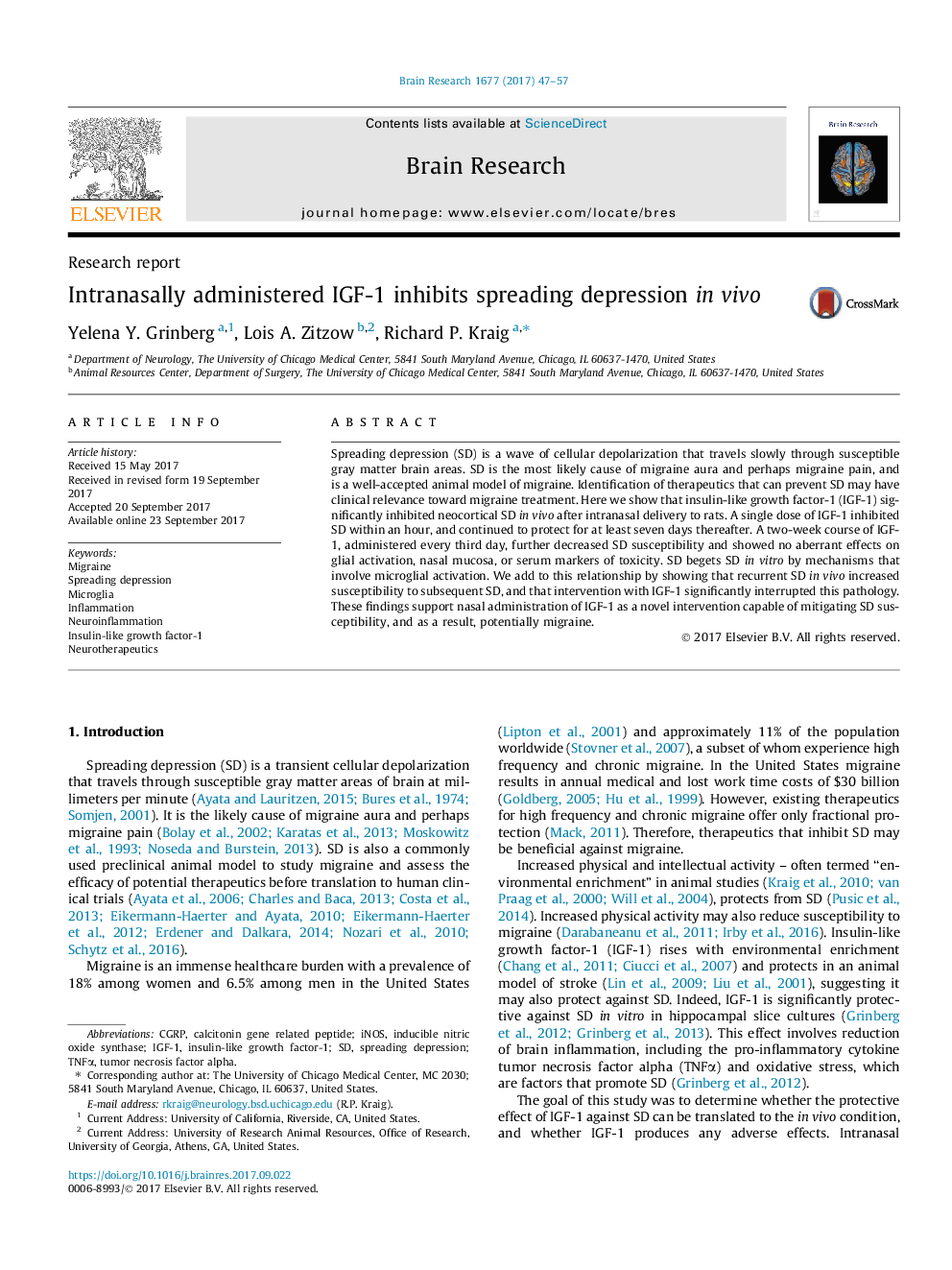| Article ID | Journal | Published Year | Pages | File Type |
|---|---|---|---|---|
| 5736598 | Brain Research | 2017 | 11 Pages |
â¢Spreading depression (SD) is the mechanism of migraine aura and perhaps pain.â¢Here we test whether intranasally administered IGF-1 protects from SD in adult rats.â¢A single dose of IGF-1 promptly protected against SD.â¢A single dose of IGF-1 continues to protect against SD out to 7 days.â¢Multiple SDs make brain more susceptible to future SD, and IGF-1 inhibits this.
Spreading depression (SD) is a wave of cellular depolarization that travels slowly through susceptible gray matter brain areas. SD is the most likely cause of migraine aura and perhaps migraine pain, and is a well-accepted animal model of migraine. Identification of therapeutics that can prevent SD may have clinical relevance toward migraine treatment. Here we show that insulin-like growth factor-1 (IGF-1) significantly inhibited neocortical SD in vivo after intranasal delivery to rats. A single dose of IGF-1 inhibited SD within an hour, and continued to protect for at least seven days thereafter. A two-week course of IGF-1, administered every third day, further decreased SD susceptibility and showed no aberrant effects on glial activation, nasal mucosa, or serum markers of toxicity. SD begets SD in vitro by mechanisms that involve microglial activation. We add to this relationship by showing that recurrent SD in vivo increased susceptibility to subsequent SD, and that intervention with IGF-1 significantly interrupted this pathology. These findings support nasal administration of IGF-1 as a novel intervention capable of mitigating SD susceptibility, and as a result, potentially migraine.
Graphical abstractDownload high-res image (92KB)Download full-size image
